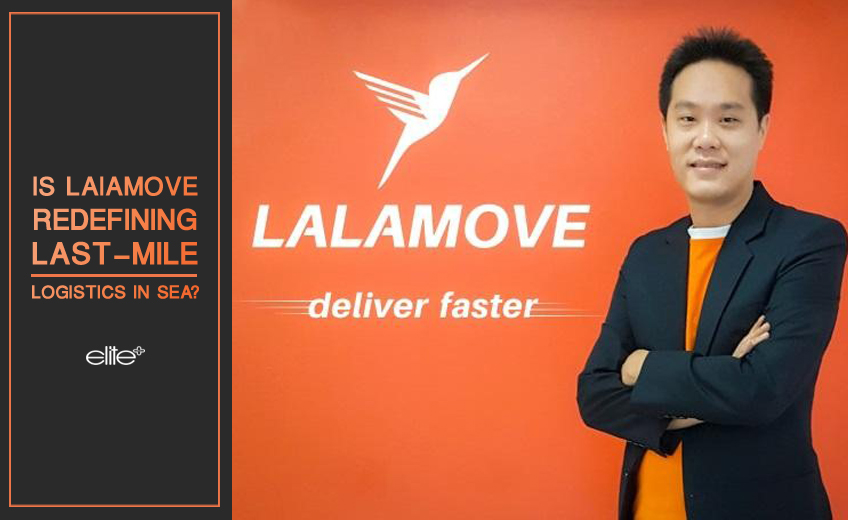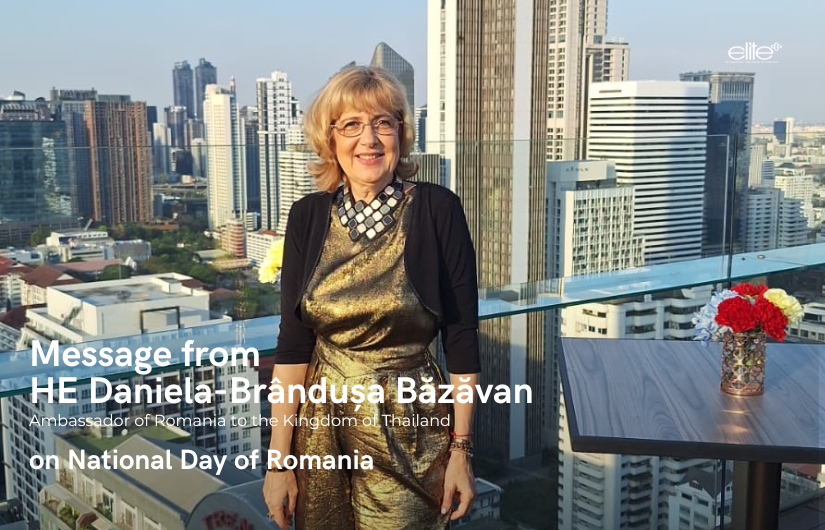With a background in energy, banking, technology and transport in Thailand and the US, businessman Santit Jirawongkraisorn is making real moves in Southeast Asia with Hong-Kong based on-demand delivery app Lalamove; accelerating the potential of last-mile logistics for business customers as well as in the domestic and restaurant-delivery markets.
Founded in 2013, Lalamove operates fleets of motorcycles, cars, SUVs, pick-up trucks and lorries with a presence in Hong Kong, Singapore, Bangkok, Taipei and Manila as well as 96 cities in China. With over 2 million drivers part of the Lalamove platform, the company boasts more than 15 million users. LalamoveRegional Director-City Operations, Santit revealed to Elite Plus some of his ideas on Lalamove and logistics in Southeast Asia.
- Do you see logistics and apps playing a bigger future role in the industries you have worked in?
I think logistics today, particularly the online model, is not just about capturing market share, but also creating new ones. There has never been a delivery service quite like Lalamove and thus people who in the past who may never have used such super-fast, on-demand services now can. It’s also about accessibility as this generates new demand. Technology plays a key role because everyone with a smartphone can download and use the service.
- What impact is this new demand and accessibility having on businesses?
Companies that weren’t interested in logistics are suddenly becoming interested. They want to provide more encompassing or better services, whether driven by the desire to serve their customers better, gain market share or PR and marketing. Certain industries are more open than others, particularly on the retail side, and they also want to partner rather than do the service themselves because it’s not their expertise.
- With $30 million in Series B funding to date and plans to expand to more than 60 cities in China and Asia by the end of 2017, there seems to be a 'go-big' investment approach. Do you think this level of fast-tracking is necessary in the region?
There is some truth in first mover advantage, but it’s not the sole factor when we consider expansion. We believe our model works everywhere, especially in markets with logistical inefficiencies. We look at this benchmark as proof of concept. We want to replicate our success across the region and expand our footprint. We wouldn’t have gone out and raised monies if we didn’t feel we are ready to expand aggressively.
- Do you think that the view of tech-based start-ups as starting small is outdated today?
Every business starts small but tech companies perhaps grow faster than traditional companies. The tech industry is super-competitive, and operators must move fast to win. It’s like the Olympics of business and creates a unique corporate culture, competitive environment and standard practices which encourage risk-taking, which, if taken to the extreme can be detrimental. Technology allows tech companies to be relatively small in size because it is used to enable new, innovative business models that can grow and scale.
- What challenges does Lalamoveface in the region?
Southeast Asia is very diverse even though countries are geographically close to each other. To be successful I believe mindfulness of these differences is key. For Lalamove to scale effectively, I also need to achieve a certain level of standardization in workflows, processes, technology etc. I need to effectively make certain local trade-offs without sacrificing growth. It’s a challenge that I have been tackling since starting in this role. I’m also learning a lot from the journey.
- You worked for a private equity fund. Are you seeing an increase in investor interest in app technology, logistics and e-commerce within the region?
Absolutely, especially during the past 3-4 years.PE/VC investments in the technology sector have significantly increased in the region to a level that hasn’t been seen before or not for a long time.
- How do you respond to the need to create brand loyalty which is often lacking in app businesses?
I think as a brand you have to know what you stand for to keep customers with you. Then you have to keep evolving. You need to compete, find new ways of doing things, do new things to improve and create more values. Lalamove supply model accommodates varying demand and scaling. Our job is to make sure that supply has enough bandwidth to accommodate the expected volume at all times
- Are customers willing to pay enough to take Lalamove to profitability and beyond venture capitalist investments?
We aim to create service that provides real value that users are willing to pay for. Some of our cities are already profitable. When I say profitable what I mean is positive net operating income. I aim to make a few more cities profitable by the end of this year.




















































































































































































































































































































































































































































































































































































































































































































































































































































































































